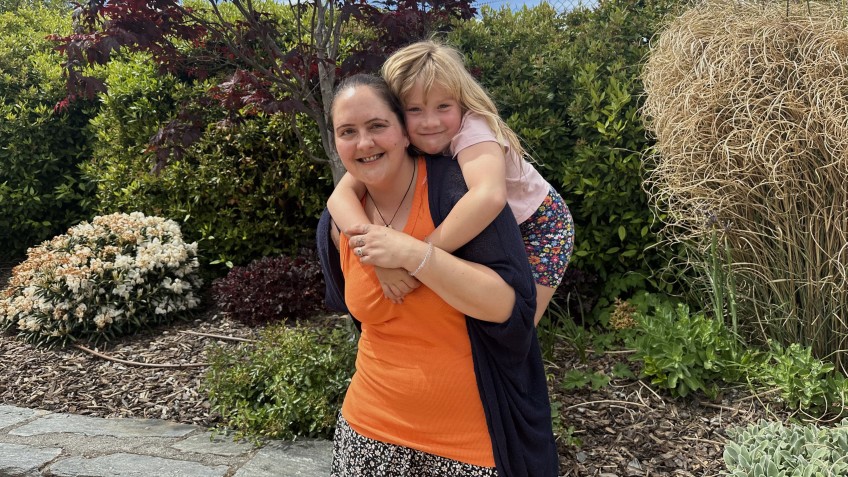Long Covid diagnosis prices long term local out of Queenstown housing

She's called the area home for twenty years, but Rebecca Lemon's found herself excluded from Queenstown's housing market after a Long Covid diagnosis.
Ms Lemon remembers the town before there was any traffic, having lived here half her life, but now she's been "outpriced" from housing for herself and eight-year-old daughter Summer.
Long Covid has impacted every area of her life, and each day is spent in "survival mode", as she copes with symptoms that include chronic fatigue, memory loss, muscle aches, and having trouble thinking of the right words when speaking.
"There's nowhere to turn...Queenstown is not a place for single mothers," Ms Lemon says.
Ms Lemon says her housing options are extremely limited due to her low income, the housing crisis and high rental prices. She's recently put her name on the Queenstown Lakes Community Housing Trust waitlist, along with approximately 1,000 others.
December 23 - just two days out from Christmas - is move date, when she must leave a current two-bedroom home provided by her employer. Her contract was terminated due to medical incapacity.
Long Covid meant she was unable to do her contractual minimum 24 hours, and her employer "can't continue to support the reduced hours", Ms Lemon says.
She'd been working in the job for 10 years, and living in her current property for three of them. Ms Lemon first started experiencing symptoms of Long Covid after contracting the virus for the second time in six months back in July 2022.
Numerous doctor appointments, a smorgasbord of symptoms and six months later, Ms Lemon was diagnosed with Long Covid in January this year.
She's now accepted that contracting Long Covid was not her fault, but it's a "debilitating" illness and makes it hard for her to get through the day.
In the earlier days of living with Long Covid, Ms Lemon could not remember her name or her PIN number, she describes physically feeling like her bones were made out of metal.
The doctors instructed her to rest, but that's hard to do whilst still being a mum and working enough to cover living costs.
"I need to work to survive, what is the solution? I'm priced out of Queenstown housing and now facing a lower income."
Ms Lemon's life is in limbo until she fully recovers, but due to the newness of the illness, no medical professional can tell her when that will be.
There's limited accommodation in Queenstown for her demographic, after searching TradeMe, Bayleys and Harcourts there's only one two-bedroom available, valued at $690 a week.
Ms Lemon says there's no plan after December 23, other than going into emergency housing with Ministry of Social Development (MSD) that runs for seven days at a time, and going to the Salvation Army for food support - something, she's never done before.
She's also looking for accommodation outside of Queenstown.
"I don't want Summer's life to be emergency housing."
A support network of friends have stepped in to help by dropping off meals.
But not everyone has taken her illness seriously, with some friends telling her "a night out will fix it", and other family members saying "just go to work".
There's no government support either; Ms Lemon says ACC, Work and Income, and MSD doesn't offer any specific support for Long Covid.
Ms Lemon got in touch with Mana Tāhuna's social services team, who were able to help her obtain an emergency housing voucher through MSD.
Mana Tāhuna chief executive Mike Rewi says they are seeing a lot of young families, those not suited to flatting or house sharing, being priced out of the local market and requesting support.
"We are dealing with whānau that can’t even get into rental homes, which creates tough conversations around them staying in Tāhuna."
Mr Rewi says first-home buying is really unaffordable in Queenstown, even in “special housing areas”.
"Unless you're up for flatmates", renting in Queenstown isn't affordable for those who aren't working full-time or on a high income, Mr Rewi says.
"If our lower socio-economic demographic can get into homes, it then becomes trying to keep the lights on and families fed."

























